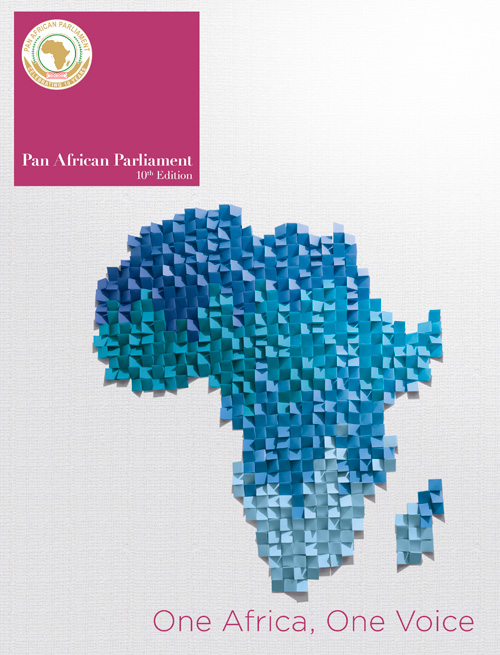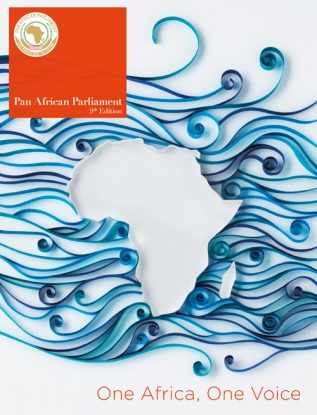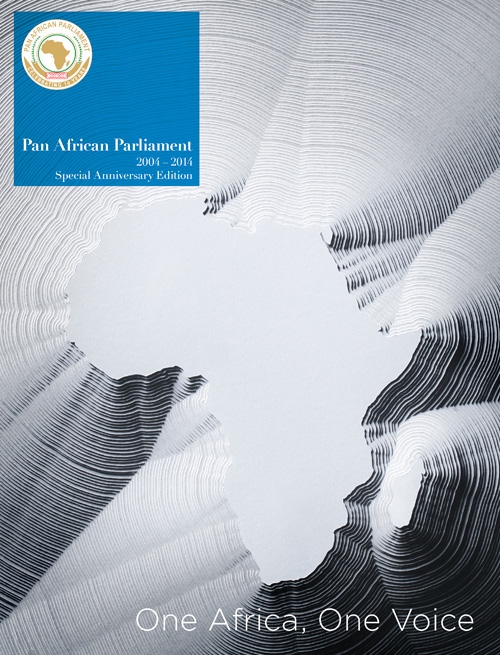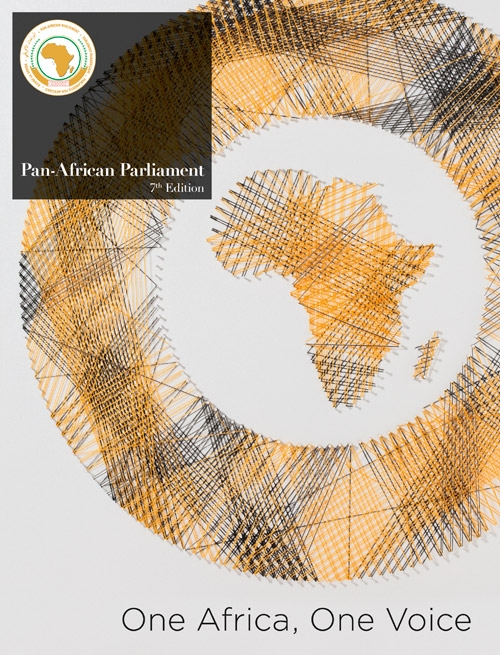
Regional integration on the continent is a highly debated topic by those seeking to unite Africa. It is considered by the AU and the PAP as an imperative and is almost inseparable from the value of democracy. Both these concepts have particular significance for Zwelethu Madasa, Clerk of the PAP who points out that without internal integration within the Parliament, it would not have credibility when pushing for regional integration. It would not be able to lead by example without democratic principles.
‘There is, as we all know, a tremendous amount of global interest in Africa. Like most institutions the PAP is going to need some transformation, particularly to ensure that we present the Parliament as a model of a true parliamentary democracy,’ says Madasa. ‘Bear in mind that we draw our members from 53 national parliaments, all with diverse backgrounds, languages, ethics and cultures. Each also has different interests, be it personal, national, regional or continental, so it’s quite tricky to manage and balance these varied perspectives especially when there is no homogeneous approach to democracy on the continent.
‘Our members don’t just represent their governments, but are also agents of the PAP in that they can inform their own parliaments about the pressing need to establish sound legislative procedures and, more importantly, promote the value of unification and regional integration so that Africa can defend itself against global powers. If we do not stand united as one economy the continent will experience, among other things, massive governance issues,’ warns Madasa.
Madasa is also convinced that Africa will perish if regional integration does not happen. ‘No continent can succeed economically against big and aggressive powers if each is pursuing its own agenda. But if we had say, 500 million people working together, we will be able to ensure that economic growth is possible, viable and sound.’
Taking its lead from the AU Commission and its recent appointment of Chairperson Dr Nkosazana Dlamini-Zuma, who herself comes from a transformed democratic background, the PAP is ready to evolve so that it remains relevant and credible on the continent. Madasa says there are two challenges in particular that the PAP will be addressing.
‘There are still some Member States that see the PAP as a bit of a nuisance, largely because the stronger we become the more we challenge their unfair practices. As the PAP gains in prestige, some leaders are going to really feel our Parliament as a thorn in their side. This will have a big impact on motivating regional integration and eliminating individual self-serving benefits.
‘Secondly, at the PAP we need to address sufficiently the issue of self-reliance, especially with regard to our resources and funding. For too long we have depended on support from powers external to the continent.
‘People need to see the value of being involved in the PAP because if they remain on the outside, someone, or some other force, will be making decisions on their behalf.’
‘We have created a platform for African voices and therefore have to represent the people and push for development’
Part of the process of transformation means the PAP will be taking on an increased oversight role to ensure programmes, which have been agreed upon, are actually implemented so that the lives of people can begin to change. Evidence of this is the bringing together, by the PAP, of a large number of human rights organisations so that governance issues can be addressed with one voice.
PAP protocol is also to undergo transformation and this is going to make a huge difference to the visibility of the PAP, Madasa says. ‘It has already been approved in principle that members, once elected, should become full members. Currently they only work at national level and that has a tendency to make them weaker in terms of really representing the institution and its mandate. We also intend to increase our membership in the spirit of being an all-encompassing PAP.’
Another area that will be a priority for the PAP is to ensure that through its own processes and committees, recommendations for policy revisions reach the ears of those who have the power to change them, and that there is follow-through on those.
‘We have created a platform for African voices and therefore have to represent the people and push for development, otherwise it’s all talk with no result,’ says Madasa.
The PAP is also making excellent inroads in strengthening its relationships with organisations such as the World Bank and the IMF. It has developed a draft memorandum of understanding with the African Development Bank and continues to work with long-standing partners, the EU and the European Commission. It has a great relationship with the European Parliament especially from a ministerial and resource perspective.
Of its most recent successes, Madasa highlights the promotion of the African Charter on Democracy, Elections and Governance.
‘We started this campaign in conjunction with the AU at the end of 2010 and it finally culminated in the requisite number of ratifications in February this year. We’ll be spreading this, through our members, across regional and national parliaments in the coming months.’
In Madasa’s opinion, one of the most valuable, and ongoing, achievements is what he refers to as ‘the soft perspective’ of PAP operations – its meetings. ‘That we achieve harmony despite the diversity of our members, is a display of just how successful integration can be.
‘Such harmony can be instrumental in terms of continental development and, given our plans for transformation, it will be clear that if people want to be part of Africa’s development, all nations at some point in the future are going to have to become members of the PAP.’







